Description
Buy Azure cloud accounts
Choosing Microsoft Azure for cloud computing can be driven by several factors, depending on specific business needs and preferences. Here are some compelling reasons why organizations opt for Azure:
-
Comprehensive Service Portfolio:
- Azure provides a wide range of services, spanning computing, analytics, databases, machine learning, IoT, and more. This comprehensive portfolio accommodates diverse business requirements.
-
Integration with Microsoft Ecosystem:
- Seamless integration with Microsoft products like Windows Server, Active Directory, and Microsoft 365 makes Azure an attractive choice for organizations heavily invested in Microsoft technologies.
-
Hybrid Cloud Capabilities:
- Azure offers strong support for hybrid cloud scenarios, allowing organizations to seamlessly connect on-premises infrastructure with the cloud. This flexibility is crucial for businesses with existing data centers.
-
Enterprise Focus and Support:
- Azure is designed to meet the needs of large enterprises, providing robust support, compliance certifications, and enterprise-grade solutions. This makes it suitable for organizations with complex requirements.
-
AI and Cognitive Services:
- Azure offers a suite of AI and cognitive services, empowering businesses to infuse artificial intelligence into their applications for improved functionality and insights.
-
Developer-Friendly Environment:
- Azure supports a variety of programming languages, frameworks, and tools, providing a developer-friendly environment. Developers can leverage their existing skills and tools to build applications on Azure.
-
Global Presence:
- Azure has a substantial global presence with data centers strategically located around the world. This enables low-latency access to services and compliance with data residency requirements.
-
Security and Compliance:
- Microsoft Azure prioritizes security, implementing advanced security features such as Azure Active Directory, encryption, and compliance with various industry standards and regulations.
-
Enterprise-Grade Support:
- Azure provides different levels of support, including enterprise-grade support plans with varying response times and assistance levels, ensuring that businesses receive the support they need.
-
Cost Management and Flexibility:
- Azure offers flexible pricing models, enabling users to pay for the resources they use. This flexibility, coupled with cost management tools, allows organizations to optimize their cloud spending.
-
Community and Learning Resources:
- Azure has a growing community and offers extensive learning resources, including documentation, tutorials, and training programs, facilitating skill development and knowledge-sharing.
Ultimately, the choice between cloud service providers, including Azure, AWS, and Google Cloud, depends on specific organizational needs, existing infrastructure, and strategic considerations. Azure’s strengths lie in its integration capabilities, enterprise focus, and a comprehensive set of services.
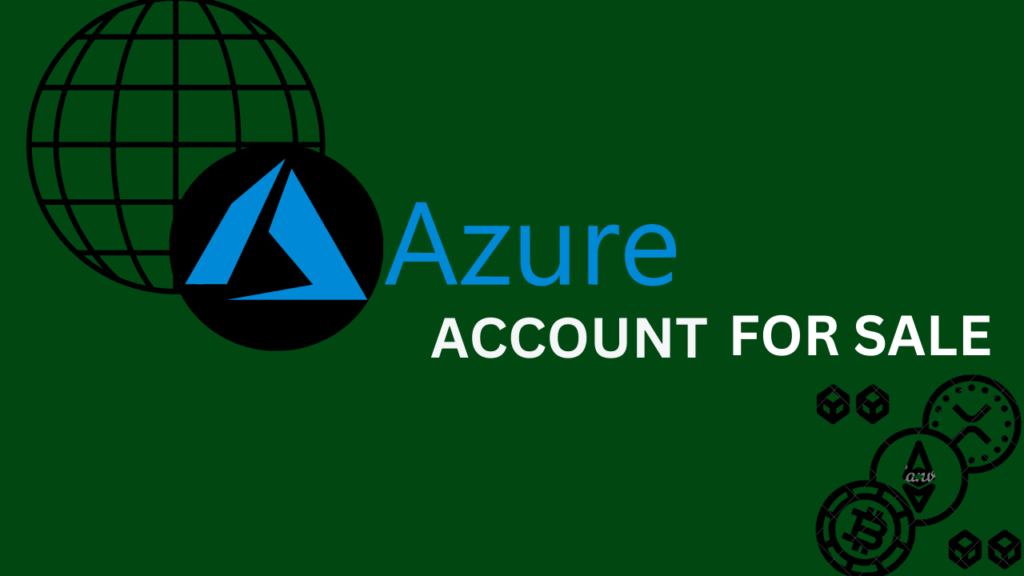
Available Azure cloud accounts for sale
Whatever your use for personal or business. Single to bulk, tire to premium all types of Azure accounts are available here.If you are a company or organisation and you need bulk and number of accounts then you are in the right place. Revolutionise your business with our reliable Microsoft Web Services (Azure), the world’s leading cloud computing platform! For a limited time, experience unmatched scalability, security, and innovation at an unbeatable price.
- Global Reach: Deploy applications worldwide for optimal performance.
- Comprehensive Service Offering: Access a full spectrum of cloud services tailored to your business needs.
- Security and Compliance: Trust Azure’s industry-leading security measures and compliance certifications.
Seize the opportunity to transform your business with Azure! Act fast, as this sale won’t last forever. Embrace the cloud revolution today!
Why should you buy verified Azure cloud accounts?
Yes, it is necessary to verify Azure cloud accounts. Account verification is a standard security practice in cloud computing platforms, including Microsoft Azure. The verification process helps ensure the security of the account, the data stored within the Azure environment, and compliance with Microsoft’s security standards. Here are key aspects of account verification for Azure:
-
Email Verification:
- During the sign-up process, users typically need to verify their email address. This step ensures that the email associated with the Azure account is valid and under the control of the account owner.
-
Identity Verification:
- Depending on the specific Azure services and subscription plans, users may need to undergo identity verification. This process may involve providing additional information to confirm the user’s identity and prevent unauthorized access.
-
Payment Information:
- For account verification and usage tracking, users often need to provide valid payment information. This is important for billing purposes and to ensure that the person or organization signing up for Azure services is authorized to do so.
-
Two-Factor Authentication (2FA):
- Azure strongly recommends enabling Two-Factor Authentication (2FA) for additional security. This involves using a second form of verification, such as a mobile app or SMS code, in addition to the password.
-
Compliance Verification:
- In certain cases, especially for enterprise customers or industries with specific compliance requirements, there may be additional verification steps to ensure that the Azure environment complies with relevant standards.
By verifying Azure accounts, Microsoft aims to enhance the overall security of the platform and protect users from unauthorized access and potential security threats. Users should follow the verification steps provided during the sign-up process and adhere to best security practices, such as regularly updating passwords and enabling 2FA, to maintain the security of their Azure accounts.
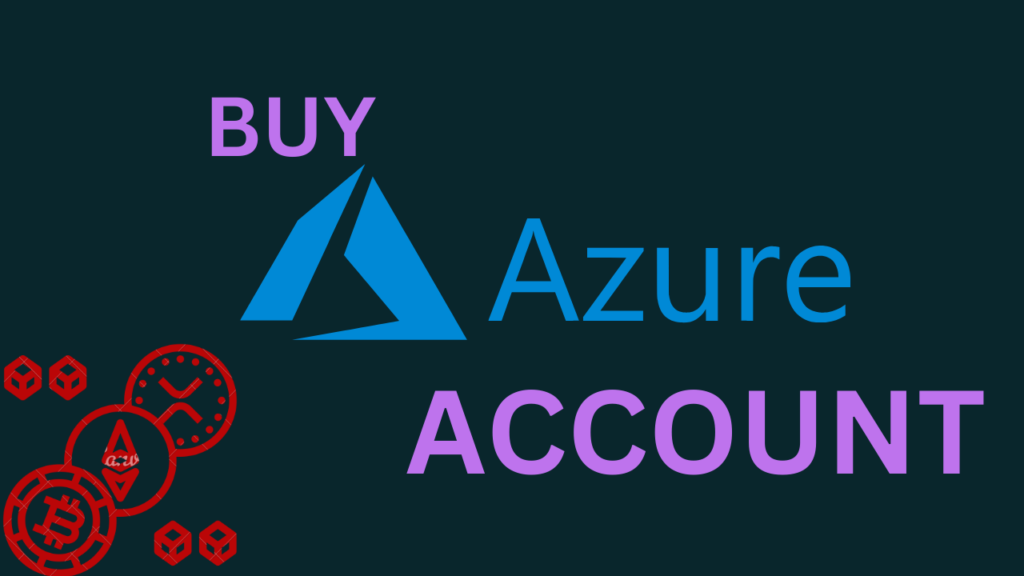
FAQs to buy Azure cloud account
Azure Cloud’s website might include more specific and up-to-date information. Always refer to the official Azure cloud website or support resources for the latest information. Here’s a sample set of FAQs:
Q: How do I create an Azure cloud account?
A: Visit the Microsoft Azure website, click “Start for free,” and follow the prompts to create an Azure account. You’ll need a valid email address and payment information.
Q: Is there a cost associated with creating an Azure cloud account?
A: Creating an Azure account is free, but certain services may have associated costs. Azure often provides free trial credits for new users.
Q: How can I verify my Azure cloud account?
A: During the sign-up process, you’ll be prompted to verify your email address. Additionally, you may need to provide payment information for account verification.
Q: What services are available on Microsoft Azure?
A: Azure offers a comprehensive set of services, including computing, storage, databases, networking, AI and machine learning, IoT, and more. Explore the Azure portal to discover the full range of services.
Q: How can I manage billing for my Azure cloud account?
A: Use the Azure portal to set up billing, monitor usage, and manage costs. Azure provides tools for cost management, budgeting, and monitoring spending.
Q: Is there a free tier available on Azure?
A: Yes, Azure offers a free tier with limited usage of select services. This allows users to explore and experiment with Azure without incurring charges.
Q: Can I use Azure for hosting websites or applications?
A: Yes, Azure provides services like Azure App Service and Azure Virtual Machines for hosting websites and applications.
Q: How is data security ensured on Microsoft Azure?
A: Azure implements robust security measures, including encryption, identity and access management, and compliance certifications. Users can configure security settings based on their specific needs.
Q: What support options are available for Azure cloud users?
A: Azure offers various support plans, including free community support, as well as premium support plans with different levels of assistance, response times, and access to Microsoft experts.
Q: Can I collaborate with others on my Azure cloud projects?
A: Yes, Azure allows collaboration through role-based access control (RBAC), enabling users to grant permissions and manage access to resources within their Azure environment.
Q: Is there a certification program for Azure?
A: Yes, Microsoft offers a certification program for Azure, providing individuals with the opportunity to validate their skills and expertise in using Azure services.
Remember that Azure’s offerings and features may evolve, so it’s advisable to check the official documentation and support resources for the most up-to-date information.
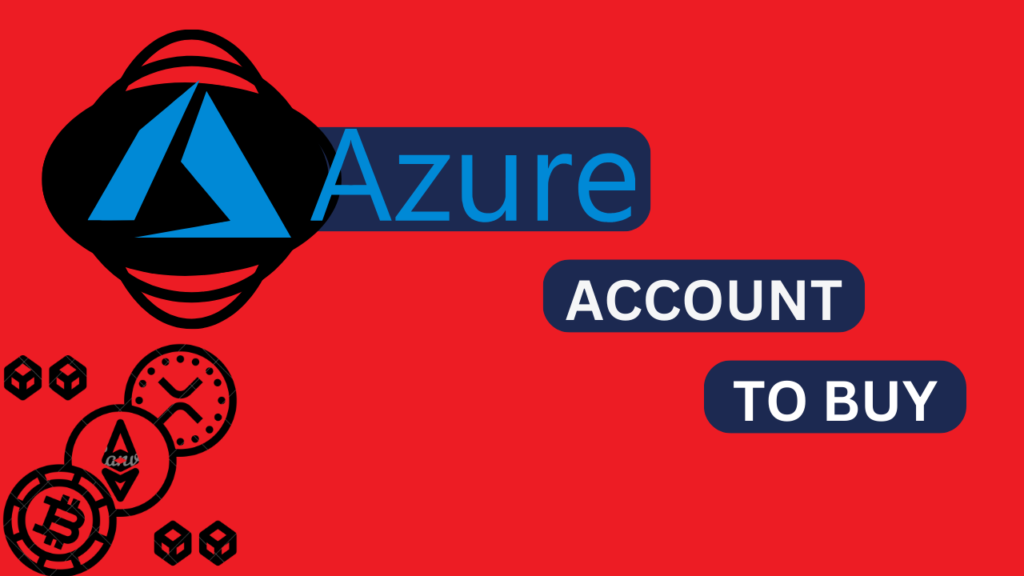
Why do you choose us to buy Azure accounts?
Here are a few additional information about every one of the following reasons
Competitive rates:
We provide competitive rates when purchasing Azure as we strive to provide the most price that our users can get. We realise that you’re faced with an option when it comes to purchasing Azure. We would like to ensure that you select us because we provide the most competitive price.
Secure and safe platform:
We utilise a variety of security measures to safeguard your data, including the use of encryption and fraud prevention along with two-factor security. We are very concerned about security and wish you to have confidence that your transaction is secure when you do business with us.
Speedy and efficient:
We process transactions fast and efficiently due to the fact that we know that time is crucial to you. Our goal is to help you have your Azure as swiftly as you can, which is why we do our best to ensure that you get your money as swiftly as possible.
Good reputation:
We are known for our excellent customer service. We know that purchasing Azure can be a challenging undertaking, so we’d like to ensure that you are satisfied. We’re available to answer any questions you may have and assist you in the transaction.
100% money back guarantee:
We only offer a product guarantee, if not three working days, or for 72 hours. cash return guarantee.
Available 24/7:
We are always available to answer any questions you may have and assist you in the transaction. We realise that you could have to purchase Azure any time of the day or night, so we want to ensure that we’re available to assist you.
We hope that this article will be of help. For any additional queries, please don’t hesitate to get in touch with us.
What can you do to buy Azure cloud accounts?
With a Microsoft Azure cloud account, you can leverage a wide range of services and capabilities to build, deploy, and manage applications and services. Here are some key things you can do with an Azure cloud account:
1. Compute Services:
- Virtual Machines (VMs): Create and manage virtual machines to run applications and workloads.
- Azure Kubernetes Service (AKS): Deploy, manage, and scale containerized applications using Kubernetes.
- Azure App Service: Build, deploy, and scale web apps and APIs.
2. Storage and Databases:
- Azure Blob Storage: Store and retrieve unstructured data, such as documents and images.
- Azure SQL Database: Managed relational database service for SQL Server.
- Cosmos DB: Globally distributed, multi-model database service for NoSQL data.
3. Networking:
- Virtual Network (VNet): Create isolated network environments for your applications.
- Azure Load Balancer: Distribute incoming network traffic across multiple servers.
- Azure VPN Gateway: Establish secure connections between on-premises networks and Azure.
4. Identity and Access Management:
- Azure Active Directory (AD): Manage and secure identities for users and devices.
- Azure AD B2C: Provide identity management and authentication for customer-facing applications.
5. AI and Machine Learning:
- Azure Machine Learning: Build, train, and deploy machine learning models.
- Cognitive Services: Integrate pre-built AI capabilities into your applications, such as vision, speech, and language services.
6. IoT (Internet of Things):
- Azure IoT Hub: Connect, monitor, and manage IoT devices securely.
- Azure IoT Central: Build and manage IoT solutions without the need for extensive expertise.
7. Developer Tools:
- Azure DevOps: Tools for planning, tracking, and deploying software.
- Visual Studio App Center: Continuously build, test, release, and monitor apps for mobile and desktop platforms.
8. Security and Compliance:
- Azure Security Center: Get advanced threat protection across all your Azure workloads.
- Azure Policy: Enforce organizational standards and compliance.
9. Serverless Computing:
- Azure Functions: Execute code in response to events without provisioning or managing infrastructure.
- Logic Apps: Automate workflows and integrate services, apps, and data.
10. Data and Analytics:
- Azure Synapse Analytics (formerly SQL Data Warehouse): Analyze and visualize large datasets.
- HDInsight: Process and analyze big data using open-source frameworks.
11. Mixed Reality:
- Azure Mixed Reality Services: Build immersive mixed reality experiences.
12. Blockchain:
- Azure Blockchain Service: Deploy, manage, and scale blockchain networks.
13. Content Delivery:
- Azure Content Delivery Network (CDN): Deliver high-bandwidth content to users around the world.
These are just a few examples, and Azure continues to expand its services to meet the evolving needs of businesses and developers. The flexibility and scalability of Azure make it suitable for a wide range of industries and use cases.
Why is Azure cloud the best cloud service in the world?
Determining the “best” cloud service provider depends on specific needs, use cases, and organizational requirements. While Azure is a major and widely-used cloud platform, whether it’s the “best” for a particular situation can vary. However, here are several factors contributing to Azure’s popularity and recognition:
-
Comprehensive Service Offering:
- Azure provides a comprehensive set of services covering computing, storage, databases, networking, AI, machine learning, IoT, and more. This broad offering allows organizations to build and deploy diverse applications and solutions within a single platform.
-
Hybrid Cloud Capabilities:
- Azure cloud has a strong focus on supporting hybrid cloud scenarios, enabling seamless integration between on-premises data centers and the cloud. This is beneficial for organizations with existing infrastructure investments.
-
Integration with Microsoft Ecosystem:
- Azure cloud seamlessly integrates with other Microsoft products and services, such as Windows Server, Active Directory, and Microsoft 365. This can be advantageous for organizations already using Microsoft technologies.
-
Enterprise Focus and Support:
- Azure cloud is designed to meet the needs of large enterprises, providing robust support, compliance certifications, and enterprise-grade solutions. This focus on enterprise-level services and support is appealing to many organizations.
-
AI and Machine Learning Capabilities:
- Azure cloud offers a suite of AI and machine learning services, making it a strong choice for organizations looking to incorporate artificial intelligence into their applications and workflows.
-
Global Presence:
- Azure cloud has a significant global presence, with data centers strategically located around the world. This allows users to deploy resources close to their end-users, improving performance and compliance with data residency requirements.
-
Security and Compliance:
- Azure cloud places a strong emphasis on security, implementing features such as Azure cloud Active Directory, encryption, and compliance with various industry standards and regulations.
-
Developer-Friendly Environment:
- Azure cloud supports a variety of programming languages, frameworks, and tools, providing a developer-friendly environment. This flexibility allows developers to use their preferred tools and languages.
-
Scalability and Flexibility:
- Azure cloud allows users to scale resources based on demand, providing flexibility and cost-efficiency. The scalability of Azure cloud is crucial for organizations with varying workloads.
-
Cost Management Tools:
- Azure cloud provides tools for cost management, budgeting, and monitoring spending, helping organizations optimize their cloud spending.
-
Active Community and Learning Resources:
- Azure cloud has a growing community and offers extensive learning resources, including documentation, tutorials, and training programs, facilitating skill development and knowledge-sharing.
It’s important to note that the choice of a cloud service provider depends on specific organizational requirements, preferences, and the nature of the workloads. Other major cloud providers like AWS and Google Cloud also have their strengths and may be more suitable for certain scenarios. Organizations often evaluate multiple factors and conduct a thorough analysis before selecting a cloud service provider.
Compare Azure cloud with other cloud services
Certainly, let’s compare Microsoft Azure cloud with two other major cloud service providers: Amazon Web Services (AWS) and Google Cloud Platform (GCP). Each has its strengths, and the choice between them depends on specific organizational requirements, preferences, and use cases.
Microsoft Azure cloud :
Strengths:
- Hybrid Cloud Integration:
-
-
- Strong support for hybrid cloud scenarios, allowing seamless integration between on-premises data centers and the cloud.
-
- Microsoft Ecosystem Integration:
-
-
- Deep integration with Microsoft products and services, such as Windows Server, Active Directory, and Microsoft 365.
-
- Enterprise Focus:
-
-
- Tailored for large enterprises with a focus on compliance, support, and enterprise-grade solutions.
-
- AI and Machine Learning:
-
- A robust suite of AI and machine learning services, suitable for organizations looking to leverage advanced analytics.
Considerations:
- Learning Curve:
-
- Some users may find the learning curve steeper compared to other cloud platforms.
Amazon Web Services (AWS):
Strengths:
- Market Dominance:
-
-
- Largest market share and extensive customer base, providing a mature and well-established platform.
-
- Comprehensive Service Offering:
-
-
- A broad range of services covering computing, storage, databases, machine learning, and more.
-
- Global Network:
-
-
- A vast global network with data centers in multiple regions, ensuring low-latency access.
-
- Developer-Friendly:
-
- Offers flexibility for developers with a variety of tools, languages, and frameworks.
Considerations:
- Complex Pricing Structure:
-
- AWS’s pricing structure can be complex, and costs may vary across services.
Google Cloud Platform (GCP):
Strengths:
- Innovation in AI and ML:
-
-
- Known for cutting-edge services in machine learning, artificial intelligence, and data analytics.
-
- Global Infrastructure:
-
-
- Extensive global network with data centers strategically located worldwide.
-
- Open Source Embrace:
-
-
- Strong support for open-source technologies, making it compatible with diverse tools and frameworks.
-
- Cost Management:
-
- Transparent and flexible pricing models, often with free trial credits for new users.
Considerations:
- Market Share:
-
-
- GCP has a smaller market share compared to AWS and Azure cloud .
-
- Service Maturity:
-
- Some services may be less mature compared to counterparts on AWS or Azure cloud.
General Considerations:
- Pricing:
-
-
- Each provider has its pricing models, and costs can vary. Organizations should carefully evaluate pricing based on their specific usage patterns.
-
- Community and Support:
-
-
- The level of community and support can influence the user experience. AWS, Azure cloud , and GCP all have active communities.
-
- Specific Use Cases:
-
- The best choice often depends on specific use cases. For example, Azure cloud might be preferred for its hybrid cloud capabilities, while GCP may excel in AI and ML.
Ultimately, organizations often adopt a multi-cloud strategy, leveraging different providers for different services or workloads based on their unique strengths.
Cons of Azure cloud account
While Microsoft Azure cloud is a widely-used and well-regarded cloud platform, like any service, it has its potential drawbacks and considerations. Here are some cons associated with Azure cloud accounts:
-
Learning Curve:
- Some users find that Azure cloud has a steeper learning curve compared to other cloud platforms. This may be attributed to the breadth and depth of its services.
-
Complex Pricing Structure:
- Azure’s pricing model can be complex, with various factors influencing costs. Understanding and estimating costs accurately can be challenging, especially for users new to cloud services.
-
Service Maturity:
- While Azure cloud provides a comprehensive set of services, some users may find that certain services are less mature or feature-rich compared to counterparts on other platforms.
-
Documentation Organization:
- Some users express concerns about the organization and accessibility of Azure’s documentation. Improved navigation and clarity could enhance the user experience.
-
Market Share:
- While Azure cloud is a major player in the cloud industry, it has a slightly smaller market share than Amazon Web Services (AWS). This can impact the availability of third-party integrations and community support in some cases.
-
Resource Scaling Complexity:
- Users may find certain aspects of resource scaling to be more complex compared to other cloud platforms. Effective management of resources requires a good understanding of Azure’s scaling options.
-
Service Outages:
- Like any cloud provider, Azure cloud has experienced occasional service outages. While Microsoft works to minimize downtime, these events can impact users’ applications and services.
-
Limited PaaS Options:
- Some users note that Azure’s platform-as-a-service (PaaS) offerings may not be as extensive or mature as those of other cloud providers in certain areas.
-
Dependency on Microsoft Ecosystem:
- While integration with the Microsoft ecosystem is a strength, it can be a limitation for organizations that do not heavily rely on Microsoft technologies.
-
Global Data Center Availability:
- While Azure cloud has a substantial global presence, the number of data center locations might be perceived as slightly fewer in some regions compared to other cloud providers.
-
Initial Setup Challenges:
- Setting up an Azure cloud environment may be perceived as more complex for beginners, especially those unfamiliar with cloud concepts.
It’s important to note that these considerations might vary based on individual experiences, preferences, and specific use cases. Many organizations successfully use Azure cloud for their cloud computing needs, but it’s advisable to carefully evaluate these factors against your specific requirements before choosing a cloud platform.
Identity and security of Azure cloud accounts
The identity and security features of Microsoft Azure cloud are designed to provide robust protection for user accounts and the resources hosted within the Azure cloud environment. Here are key aspects of identity and security in Azure cloud :
Identity and Access Management (IAM):
- Azure cloud Active Directory (AD):
-
-
- Centralized identity and access management service for Azure cloud . It enables secure authentication and authorization for users and applications.
-
- Role-Based Access Control (RBAC):
-
-
- Allows administrators to assign specific roles to users or groups, defining their permissions within the Azure cloud environment. This ensures fine-grained access control.
-
- Multi-Factor Authentication (MFA):
-
- Azure cloud supports multi-factor authentication, adding an extra layer of security by requiring users to verify their identity using a secondary method, such as a mobile app or text message.
Authentication and Authorization:
- OAuth 2.0 and OpenID Connect:
-
-
- Azure cloud uses OAuth 2.0 and OpenID Connect protocols for secure user authentication and authorization, providing standardized and secure access to resources.
-
- Azure cloud Active Directory B2C:
-
- Allows organizations to provide identity and access management for customer-facing applications, ensuring secure authentication for external users.
Security Features:
- Encryption:
-
-
- Azure cloud ensures data security by encrypting data at rest and in transit. It uses industry-standard encryption algorithms to protect sensitive information.
-
- Azure cloud Security Center:
-
-
- Provides advanced threat protection across all Azure cloud workloads. It continuously monitors for security threats and provides actionable recommendations to enhance security.
-
- Network Security Groups (NSGs):
-
-
- NSGs allow users to filter network traffic to and from Azure cloud resources, providing additional control over network security.
-
- Azure cloud Key Vault:
-
-
- A secure way to manage and safeguard cryptographic keys, secrets, and certificates used by cloud applications and services.
-
- Azure cloud Policy:
-
-
- Enforces organizational standards and compliance by defining and applying policies on resources within Azure cloud.
-
- Azure cloud AD Identity Protection:
-
- Detects potential vulnerabilities in real-time and provides risk-based conditional access policies to protect against identity-based threats.
Compliance and Certifications:
- Compliance Standards:
-
-
- Azure cloud adheres to various compliance standards, including ISO 27001, SOC 2, HIPAA, and GDPR, among others. This ensures that Azure cloud can meet regulatory requirements in different industries.
-
- Data Processing and Privacy:
-
- Azure cloud has data processing terms and tools to help customers comply with data protection and privacy regulations.
Monitoring and Logging:
- Azure Monitor and Azure cloud Security Center:
-
-
- Provide centralized monitoring, logging, and diagnostics to help detect and respond to security incidents.
-
- Audit Logs:
-
- Azure cloud generates detailed audit logs that record activities and events, providing a trail for security analysis and compliance auditing.
Incident Response:
- Azure Security Response Team:
-
-
- A dedicated team that responds to security incidents and vulnerabilities, ensuring timely and effective resolution.
-
- Security Best Practices:
-
- Azure cloud provides documentation and best practices to help users implement and maintain a secure Azure cloud environment.
By leveraging these identity and security features, users can enhance the protection of their Azure cloud accounts and resources, contributing to a secure and compliant cloud environment. Regularly staying informed about security best practices and updates from Azure cloud is crucial for maintaining a strong security posture.
Conclusion of Azure cloud
In conclusion, Microsoft Azure cloud stands as a leading cloud computing platform that offers a comprehensive suite of services to cater to the diverse needs of businesses and developers. Here are key takeaways regarding Azure cloud :
-
Versatile Service Portfolio:
- Azure cloud provides a wide range of services, including computing, storage, databases, AI, machine learning, networking, and more. This versatility allows users to build, deploy, and manage applications across various domains.
-
Hybrid Cloud Strength:
- Azure cloud excels in supporting hybrid cloud scenarios, facilitating seamless integration between on-premises data centers and the Azure cloud. This is advantageous for organizations with existing infrastructure investments.
-
Integration with Microsoft Ecosystem:
- Deep integration with Microsoft products such as Windows Server, Active Directory, and Microsoft 365 enhances the user experience for organizations already utilizing Microsoft technologies.
-
Enterprise-Focused:
- Azure cloud places a strong emphasis on meeting the needs of large enterprises, offering robust support, compliance certifications, and solutions tailored for enterprise-level requirements.
-
AI and Machine Learning Innovation:
- Azure cloud stands out for its innovative services in artificial intelligence and machine learning. Users can leverage advanced analytics and incorporate AI capabilities into their applications.
-
Global Presence:
- With a substantial global network and data centers strategically located worldwide, Azure cloud provides low-latency access to services, ensuring reliable performance for users across the globe.
-
Identity and Security Features:
- Robust identity and access management, encryption, compliance standards, and advanced security features contribute to the overall security and integrity of Azure cloud accounts.
-
Developer-Friendly Environment:
- Azure cloud supports a variety of programming languages, frameworks, and tools, creating a developer-friendly environment that caters to diverse technology stacks.
-
Cost Management Tools:
- Azure cloud provides transparent and flexible pricing models, enabling users to optimize costs by paying for the resources they consume. Free trial credits allow exploration without immediate costs.
-
Community and Learning Resources:
- A growing community and extensive learning resources, including documentation, tutorials, and training programs, contribute to the knowledge-sharing and skill development within the Azure cloud ecosystem.
While Azure cloud has numerous strengths, organizations should carefully evaluate their specific needs, consider factors such as learning curves and pricing structures, and assess how well Azure cloud aligns with their business objectives before adopting it as their cloud platform of choice. Regularly staying informed about updates and best practices is essential for a successful and secure experience with Azure cloud accounts.

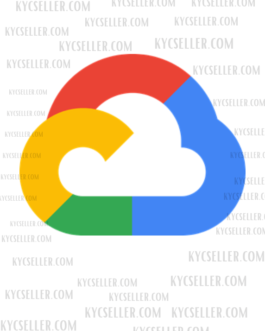
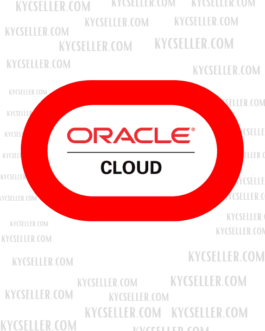
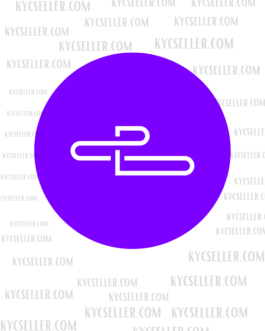

Reviews
There are no reviews yet.